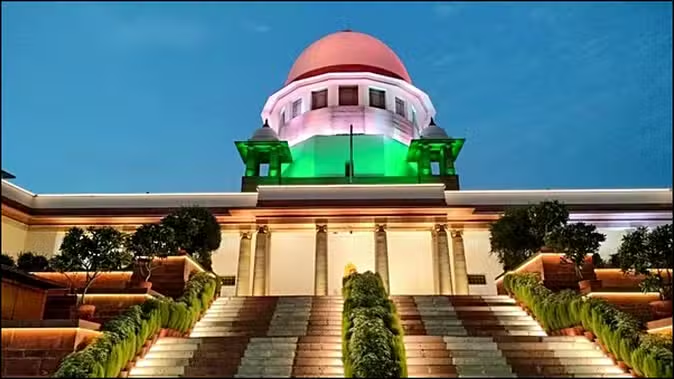‘It is the responsibility of banks to compensate for the loss caused by unauthorized transactions’- SC

New Delhi| The Supreme Court said in an important decision that banks will have to compensate for losses if they immediately report unauthorized transactions from their accounts. The court said in a strict tone that banks cannot shy away from the responsibility of protecting their customers from unauthorized transactions from their accounts. Advising account holders to also exercise utmost caution, the top court said they should ensure that they do not share OTP with any third party.
A bench of Justices JB Pardiwala and R Mahadevan held State Bank of India (SBI) responsible for fraud and unauthorized transactions from the customer’s bank account in a case. In the order dated January 3, the bench said that all the transactions related to the customer’s SBI account were found unauthorized and fraudulent. As far as such transactions are concerned, it is the responsibility of the bank. The bank should be cautious. The bank has the best technology available to detect and prevent such transactions. The circular of the Reserve Bank of India (RBI) dated July 6, 2017 further clarifies the situation.
The bench was hearing the special leave petition (SLP) filed by SBI against the decision of the Gohati High Court. The bench admitted that the transaction was fraudulent and unauthorized and the customer had immediately complained about it, hence it was not right to interfere with the decision of the High Court. Since the transaction was reported to the bank within 24 hours, the Court rejected SBI’s argument that it had no liability to the customer.
Customers should also be cautious
The bench expected customers to be cautious and not share OTP and password with any third person. The bench said that in the facts and circumstances of some cases, the customer can also be held responsible for negligence in some way or the other.
Guwahati High Court had asked to return the amount
Guwahati High Court had held SBI responsible for unauthorized transactions from the customer’s bank account. Also, SBI was ordered to return the amount. The decision of the single bench was upheld by the division bench of the High Court, which was challenged by SBI in the Supreme Court.

94,204 rupees were fraudulently withdrawn from the customer’s bank account
In the case of unauthorized transactions in which the Supreme Court has fixed the responsibility of the banks, the Guwahati High Court had ordered the return of the amount to the customer, which was challenged by the State Bank of India (SBI) in the apex court. The High Court had held SBI responsible for unauthorized transactions from the customer’s bank account. 94,204.80 was unauthorized transaction from the customer’s bank account.
According to this case, the customer did online shopping and later tried to return the purchased goods. She received a call from a fraudster posing as the retailer’s customer care. Following the instructions he downloaded a mobile app. This led to an unauthorized transaction of Rs 94,204.80 from her bank account. SBI refused to take responsibility, terming the transaction as authorized due to the customer sharing OTP and M-PIN.
At the same time, the customer claimed that he never shared sensitive information like OTP or M-PIN. The fraud was caused by a data breach on the retailer’s website, over which it had no control. Bureau The division bench of the High Court had cited clauses 8 and 9 of the circular of the RBI dated July 6, 2017. According to this, if fraudulent and unauthorized transactions are reported immediately, there is zero liability on the customers for unauthorized transactions from the customer’s bank account due to third party data breach.








